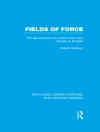Pragmatism is rooted in the linking of practice and theory. It describes a process where theory is extracted from practice, and applied back to practice to form what is called intelligent practice. Pragmatism was intended, by Charles S. Peirce, its founder, as a doctrine for the rational substantiation of knowledge claims. For Peirce, what mattered was successful prediction and control. Practice was to serve as the arbiter of theory. Objective efficacy, not personal satisfaction, is what matters for fixing opinion in a community of rational inquirers.According to Nicholas Rescher, later pragmatists saw the matter differently. They envisioned subjective satisfactions, rather than objectively determinable functional effectiveness, as being the aim of the enterprise. Rescher notes that William James, in particular, had an agenda different from that of Peirce.The two pragmatisms are complete opposites, Rescher argues, in terms of claims and intentions. James’s soft pragmatism abandons the classical idea of inquiry as the paramount of truth; it believes that truth is an illusion, an unrealizable figment of the imagination. By contrast, Peirce’s hard pragmatism believes that the classic idea of truth remains valid. Rescher seeks to examine and explore pragmatism dialectically, with a conviction that brings pragmatism to life for specialist and generalist alike.
Nicholas Rescher
Pragmatism [PDF ebook]
The Restoration of Its Scientific Roots
Pragmatism [PDF ebook]
The Restoration of Its Scientific Roots
购买此电子书可免费获赠一本!
语言 英语 ● 格式 PDF ● 网页 313 ● ISBN 9781351497268 ● 编辑 Nicholas Rescher ● 出版者 Taylor and Francis ● 发布时间 2017 ● 下载 3 时 ● 货币 EUR ● ID 5322655 ● 复制保护 Adobe DRM
需要具备DRM功能的电子书阅读器












